Critical Review - Rinnai Enviro Series Instant Gas Hot Water Systems
Instantaneous Gas Hot Water System Reviews: Critical Review of Rinnai Enviro Series - Efficiency, Performance, and Environmental Impact
Overview
The Rinnai Enviro Series Instant Gas Hot Water Systems have become a popular choice for homeowners and businesses seeking energy-efficient, environmentally-friendly hot water solutions. With a 7-star equivalent efficiency rating, these systems lead the market in offering superior energy performance and cost savings. Available in three capacities—16L, 26L, and 32L—the Rinnai Enviro Series caters to a wide range of user needs, making it suitable for small to large households and commercial settings. These units come in natural gas and LPG models, offering flexibility based on fuel preferences.
Key Features
1. Exceptional Energy Efficiency
The standout feature of the Rinnai Enviro Series is its condensing system technology, which recycles heat from flue exhaust gases, typically wasted in conventional systems. This innovation results in up to 97% thermal efficiency, significantly lowering greenhouse gas emissions and reducing operational costs. For households conscious of their carbon footprint and energy consumption, this system is a leader compared to traditional electric storage and gas storage water heaters, which generally have lower star ratings and higher energy consumption.
2. Versatile Capacity Options
The Rinnai Enviro Series offers three different capacities to suit various needs:
-
16L model: Ideal for smaller homes with one bathroom.
-
26L model: Suitable for medium-sized homes with up to 2.5 bathrooms.
-
32L model: Designed for larger homes with three or more bathrooms. This range ensures that customers can choose a unit that perfectly matches their household size and hot water usage requirements without sacrificing efficiency. These models are part of the innovative continuous flow systems, providing hot water on demand and enhancing reliability and energy efficiency.
3. Installation and Design
Designed for external installation, the Rinnai Enviro Series boasts a slimline case construction that not only makes it compact and visually appealing but also durable, particularly in coastal environments prone to corrosion. Each unit includes built-in features like a pressure relief valve, quick commissioning, and neutralized condensate drainage for easy installation and long-term maintenance. The Rinnai Enviro Series, known for its gas continuous flow systems, has achieved top rankings in gas water heater evaluations, highlighting its market positioning and customer satisfaction.
4. Temperature Control and Safety Features
With an adjustable temperature range of up to 75°C, the Rinnai Enviro Series is flexible in meeting various hot water needs. Running the hot water tap triggers mechanisms within continuous flow systems to heat water on demand, ensuring efficient heating processes. Models come factory pre-set at 50°C or 60°C, ensuring compliance with safety regulations such as AS3500.4, which requires a tempering valve for installations demanding water temperatures above 60°C. The system’s anti-frost protection allows it to operate reliably in temperatures as low as -30°C, making it suitable for cold climates.
The inclusion of Puretemp™ temperature stability technology further enhances user safety by delivering stable outlet water temperatures and reducing the risk of scalding. This, combined with Enhanced Combustion Technology (ECT), ensures a consistent supply of hot water without temperature fluctuations, providing users with optimal comfort.
5. Environmental Benefits
The Rinnai Enviro Series’ superior energy efficiency translates into lower greenhouse gas emissions, making it an environmentally conscious choice. Its solar compatibility also allows users to integrate the system with solar hot water solutions, reducing reliance on fossil fuels and contributing to a greener energy profile. This combination makes the Rinnai Enviro Series an appealing option for eco-conscious users. Additionally, considering a heat pump can further enhance energy efficiency and provide financial incentives like rebates and tax credits, especially in Australia.
6. Heat Exchanger Quality and System Longevity
When selecting a gas hot water system, the quality of the heat exchanger is paramount. The heat exchanger is the heart of the system, responsible for transferring heat from the burning gas to the water. The Rinnai Enviro Series features high-quality heat exchangers made from durable materials like stainless steel, known for its longevity and excellent heat transfer capabilities.
A well-designed heat exchanger maximizes energy transfer, ensuring that the system operates efficiently while reducing strain. This efficiency not only lowers energy consumption but also minimizes the risk of corrosion and scaling, common issues that can shorten the lifespan of a hot water system. The large surface area of the heat exchanger in the Rinnai Enviro Series allows for optimal heat transfer, while its design minimizes pressure drops and maximizes flow rates.
The superior quality of the heat exchanger is reflected in the system’s high energy efficiency rating, making it a reliable and efficient choice for continuous hot water supply. Investing in a system with a top-notch heat exchanger ensures long-term performance and durability, providing peace of mind for years to come.
Cost Considerations
While the initial cost of purchasing and installing a new hot water system like the Rinnai Enviro Series may be higher than less efficient alternatives, the long-term savings on energy bills and the system’s lower environmental impact make it a worthwhile investment. The energy savings, combined with reduced maintenance costs, offer significant financial benefits over the system’s lifespan.
Maintenance and Durability
Built with stainless steel heat exchangers, the Rinnai Enviro Series is highly durable and corrosion-resistant, even in challenging environments. The system comes with a 12-year warranty on the heat exchanger, reflecting the manufacturer’s confidence in the product’s longevity and reliability. Routine maintenance is simplified with the unit’s direct neutralized condensate drainage and other built-in features designed for hassle-free operation.
Proper maintenance is crucial to prevent issues like the 'cold water sandwich,' where users may experience bursts of cold water during intermittent hot water supply.
1. Routine Checks and Cleaning
Regular maintenance is crucial to ensure the longevity and efficiency of your gas hot water system. Routine checks and cleaning can prevent common issues such as temperature irregularities, water tank leaks, inconsistent water pressure, strange noises, and mineral buildup in valves and components.
Here are some essential maintenance tasks to keep your system running smoothly:
-
Check the temperature and pressure relief valve: Ensure it is functioning correctly to prevent pressure build-up.
-
Inspect the heat exchanger: Look for signs of corrosion or scaling that could affect performance.
-
Examine gas supply lines: Check for leaks or damage to ensure safe operation.
-
Clean the air filter: Proper ventilation is crucial for efficient combustion.
-
Inspect water connections: Look for leaks or damage that could lead to water loss or inefficiency.
-
Perform a system flush: Remove debris or sediment that can accumulate over time and affect performance.
It’s recommended to perform these checks and cleaning tasks every 6-12 months, depending on the system’s usage and age. Hiring a licensed plumber to carry out these tasks ensures they are done correctly and safely, maintaining the system’s efficiency and extending its lifespan.
User Experience and Technology
Users will appreciate the digital temperature controllers, which provide precise control over water temperatures, allowing for easy customization. The Puretemp™ stability technology offers consistent water flow at the desired temperature, ensuring a comfortable experience with minimal fluctuations. The Enhanced Combustion Technology guarantees maximum comfort, even during periods of high demand.
Suitability for Different Living Scenarios
Gas hot water systems are versatile and can cater to a wide range of living scenarios, from compact homes to larger households. Here’s how to determine the best fit for your needs:
1. Compact Homes and Small Households
For compact homes and small households, a gas hot water system with a compact design and low energy consumption is ideal. The Rinnai Enviro Series offers models that are perfect for these settings, providing efficient hot water supply without taking up much space. Systems with high energy efficiency ratings, such as the 7-star equivalent rating of the Rinnai Enviro Series, help minimize energy consumption and reduce running costs.
A continuous flow system is particularly beneficial for smaller homes, as it heats water on demand, eliminating the need for a large storage tank. This not only saves space but also ensures a constant supply of hot water whenever you need it.
2. Larger Households and High-Demand Scenarios
For larger households and high-demand scenarios, a gas hot water system with a high flow rate and larger capacity is essential. The Rinnai Enviro Series offers models like the 26L and 32L, which are designed to meet the needs of bigger homes with multiple bathrooms. These systems ensure that hot water is available even during peak usage times.
In addition to choosing a system with a high energy efficiency rating, consider the fuel type. Natural gas is a popular choice due to its reliability and efficiency, but LPG models are also available for areas where natural gas may not be accessible.
Consulting with a licensed plumber can help you determine the best system for your specific needs, ensuring that your hot water supply is both efficient and reliable, regardless of your household size or demand.
By following this plan, the new sections will seamlessly integrate into the existing article, maintaining consistency in tone, style, and content.
Pros and Cons
Pros:
-
7-Star energy efficiency rating.
-
Solar compatible, reducing long-term energy consumption.
-
Range of capacities for different household sizes.
-
Durable, corrosion-resistant design suitable for coastal areas.
-
Long 12-year warranty on heat exchangers.
-
Precise temperature control with advanced safety features.
Cons:
-
Higher initial cost compared to standard water heaters.
-
May require professional installation for optimal performance.
-
Compatibility with existing solar systems may need expert configuration.
Conclusion
The Rinnai Enviro Series Instant Gas Hot Water Systems offer a compelling blend of energy efficiency, environmental sustainability, and user comfort. With its 7-star equivalent rating and advanced features like Puretemp™ technology, the system provides a reliable supply of hot water while keeping energy costs and carbon emissions low. Whether you’re a homeowner seeking to lower your utility bills or a business aiming to reduce your environmental footprint, the Rinnai Enviro Series is a sound investment. While the upfront cost is higher than standard systems, the long-term savings and sustainability benefits far outweigh the initial outlay.
For those in need of a high-performance, environmentally responsible, and technologically advanced hot water solution, the Rinnai Enviro Series is hard to beat.
FAQs:
1. What is the efficiency rating of the Rinnai Enviro Series? The Rinnai Enviro Series boasts a 7-Star equivalent efficiency rating, making it one of the most energy-efficient hot water systems on the market.
2. Is the Rinnai Enviro Series compatible with solar hot water systems? Yes, the series is solar compatible, allowing users to integrate solar heating for further energy savings.
3. What is the warranty on the heat exchanger? The heat exchanger in the Rinnai Enviro Series is covered by a 12-year warranty.
4. Can the Rinnai Enviro Series be installed in coastal areas? Yes, the units are designed with corrosion-resistant materials, making them suitable for coastal environments.
5. What are the available capacities of the Rinnai Enviro Series? The series offers 16L, 26L, and 32L models to cater to different household sizes and hot water needs.




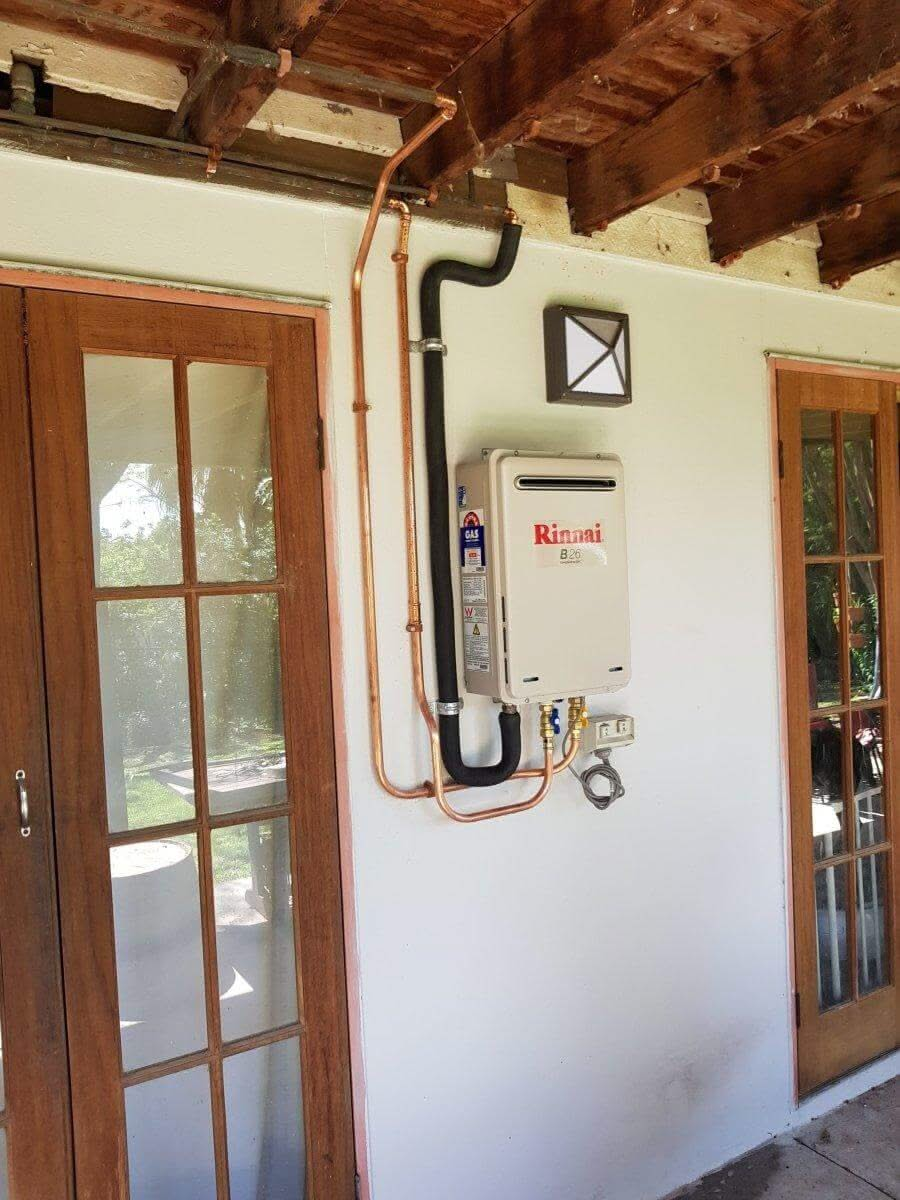
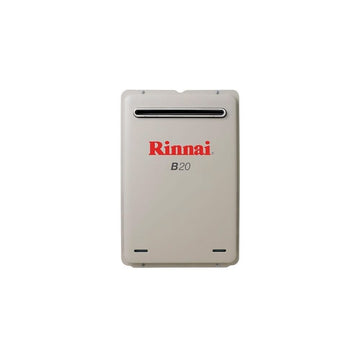
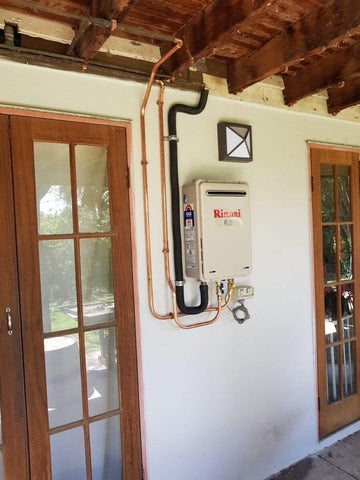
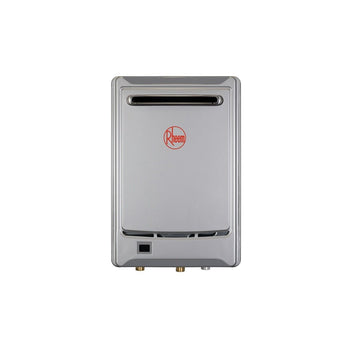
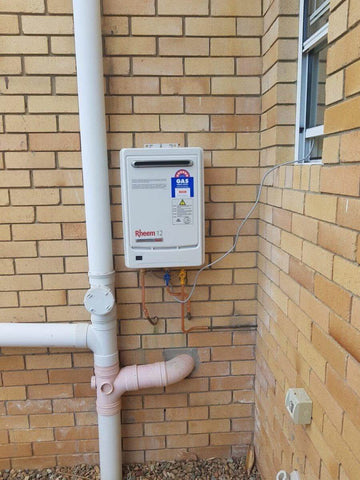
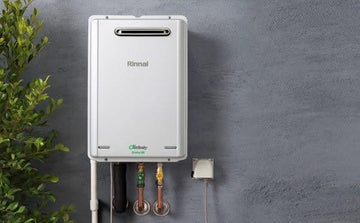
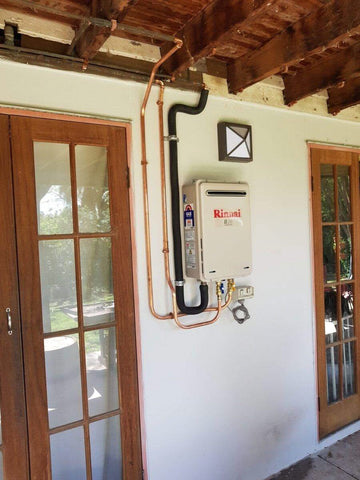
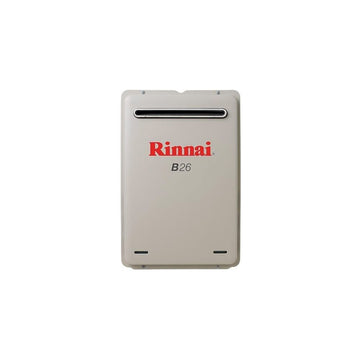
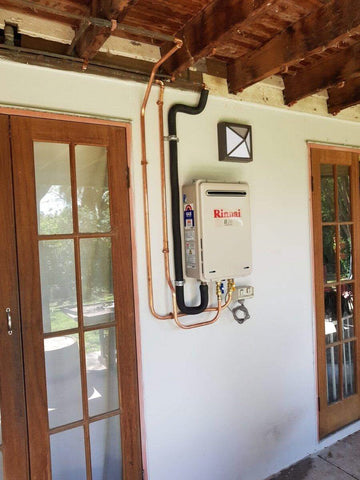
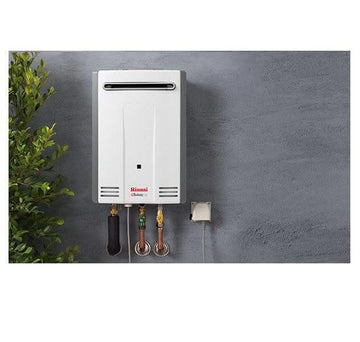
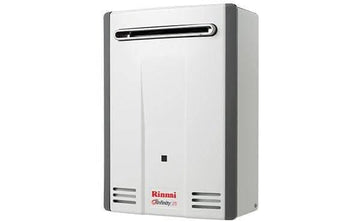
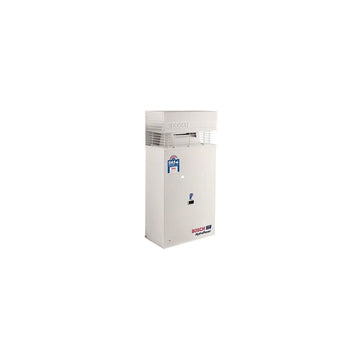
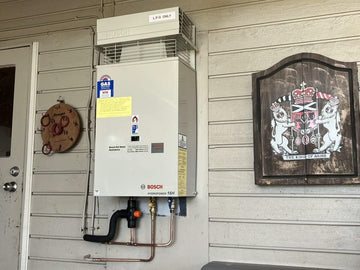
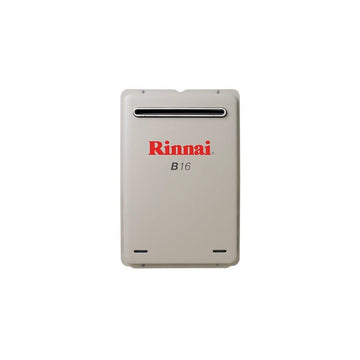
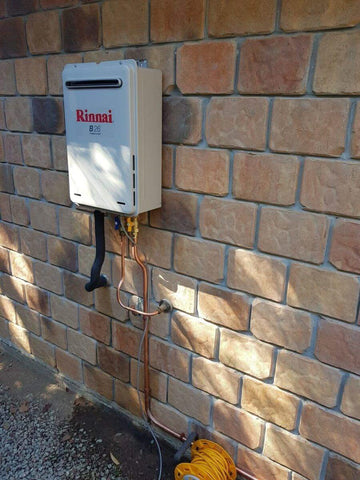
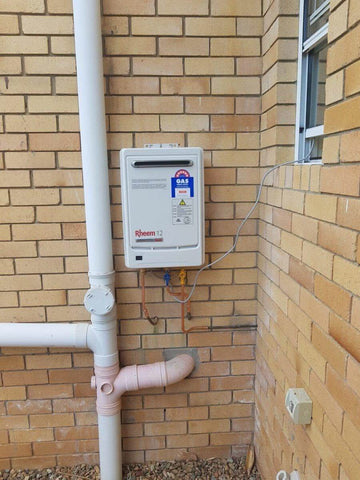
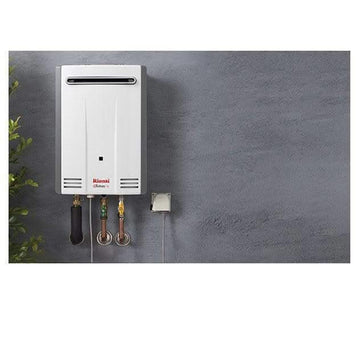
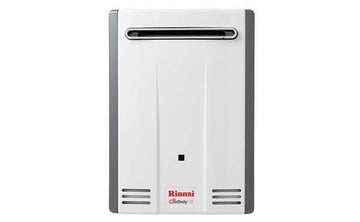
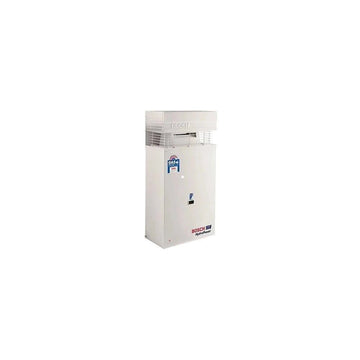
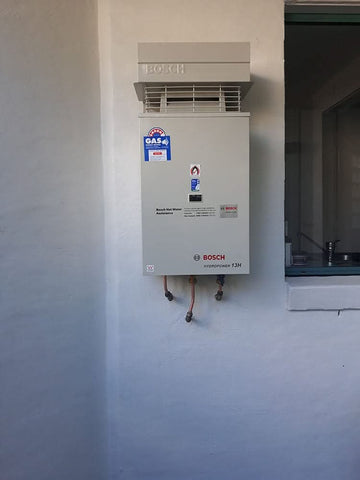
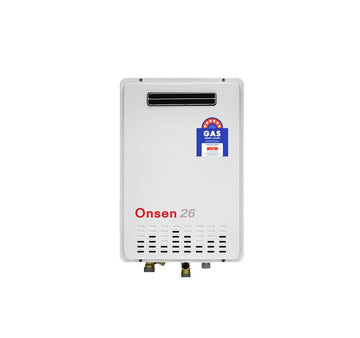

Leave a comment